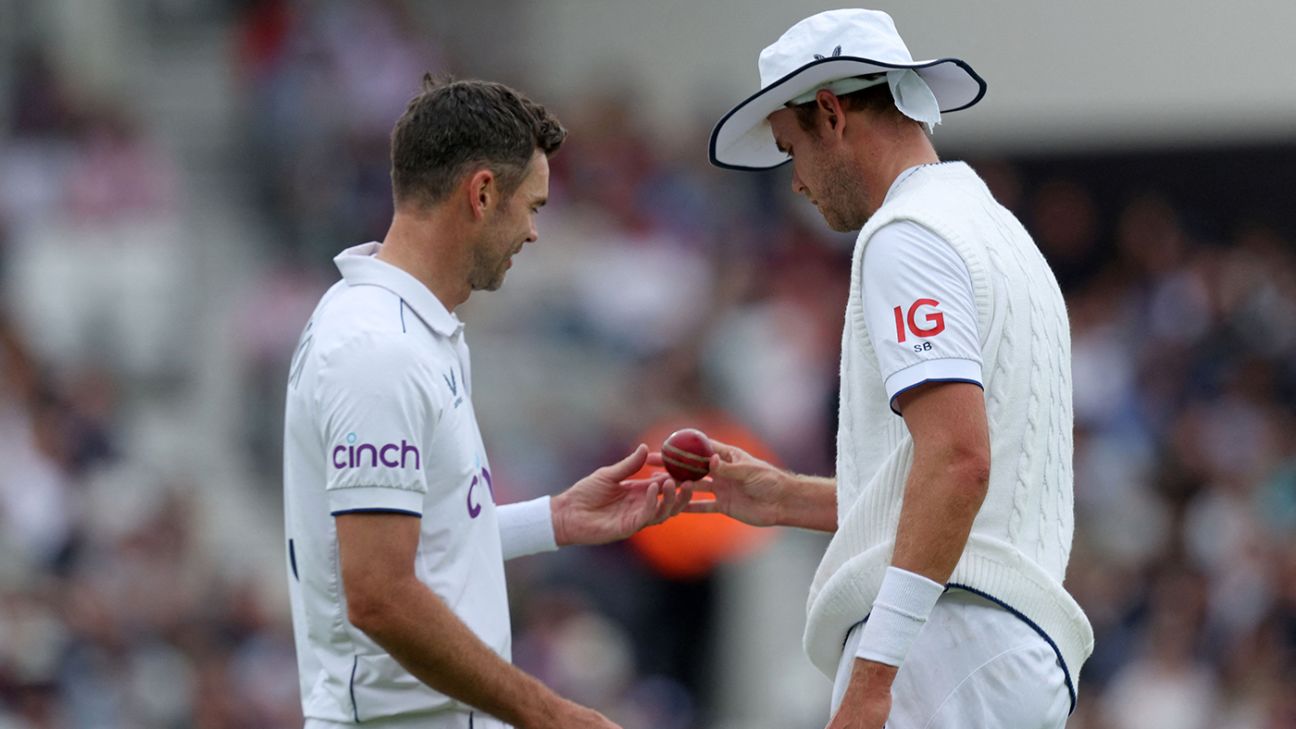The replacement appeared to be significantly harder and newer than the ball that had been used previously. England took three early wickets on the fifth morning as Australia attempted to chase down 384 to clinch a 3-1 series win, with Chris Woakes dismissing Khawaja and David Warner, and Wood having Marnus Labuschagne caught in the slips.
Ponting, the former Australia captain, suggested the umpires had either been “blasé” in their approach to changing the ball, or had not been given an appropriate replacement in the box of balls brought onto the pitch by the fourth umpire, David Millns.
“The biggest concern I have is the big discrepancy in the condition of the ball that was chosen to replace the one [that had gone out of shape],” Ponting said on Sky Sports. “There’s no way in the world you can even look at those two balls there and say in any way are they comparable.
“At the end of the day, if you are going to change the ball, you want to make sure that you get it right, so [you make it] as close as you possibly can to the one that you’re changing it from. Now if you have a look in that box, there weren’t too many older-condition balls in there. There were some older ones that were picked up, the umpires looked at that and threw them back.
“I just cannot fathom how two international umpires that have done that a lot of times before can get that so wrong. That is a huge moment in this game, potentially a huge moment in the Test match, and something I think actually has to be investigated: whether there was the right condition of balls in the box, or the umpires have just, blasé, picked one out of there that they think will be okay to use.”
Sky showed ball-tracking data that suggested the ball had both seamed and swung significantly more on the fifth morning than on the fourth afternoon, prompting Ponting to call for an investigation.
“The conditions were perfect for bowling this morning, let’s say that,” Ponting said. “The conditions were better for bowling this morning. But what I saw last night, that ball there, I’ll put my hand up and say I’ve got absolutely no doubt at all that that ball would not have done anywhere near as much as what that one did this morning.
“Double the amount of movement this morning from yesterday afternoon, seam movement and swing. I think it’s a huge blunder that needs to be investigated.”
According to Law 4.5, if the umpires agree that the balls has become “unfit for play through normal use”, they should replace it “with a ball which has had wear comparable with that which the previous ball had received before the need for its replacement”.
Marcus Trescothick, England’s assistant coach, said on the second evening that the new ball seemed “just a bit harder” than the old one.
“The boys could sense the ball was making a different sound off the bat,” he said. “Immediately, there’s a bit more life in it. Balls seem to have gone very soft, very fast in this game – and this series. Both captains have tried to change them on numerous occasions.”
Glenn Maxwell, who is part of Australia’s limited-overs set-up, tweeted shortly after the first wicket to fall: “Beware the 2nd newy #ashes”.
An ICC spokesperson told ESPNcricinfo: “We do not comment on on-field decisions. As you would expect, umpiring performance is continually evaluated.”
Matt Roller is an assistant editor at ESPNcricinfo. @mroller98
